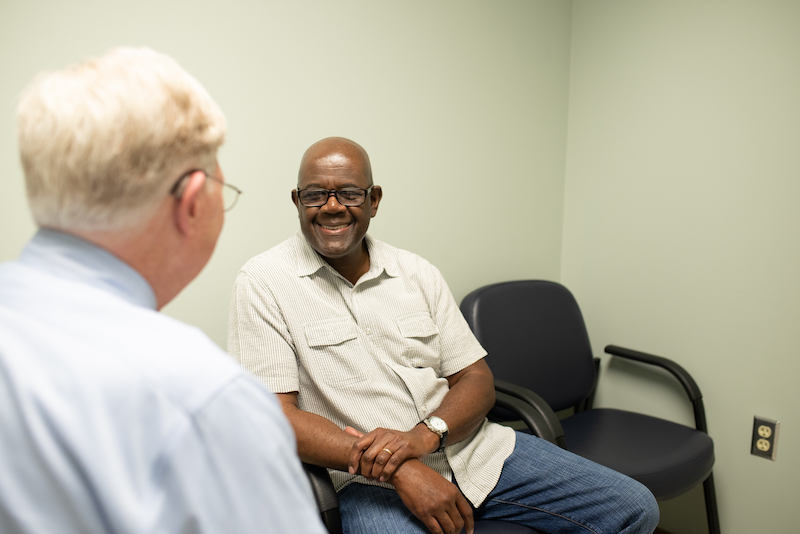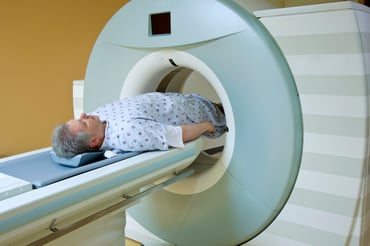
If you’ve received a prostate cancer diagnosis, it’s very likely you have some time to consider various treatment options. Often the urologist who performed the biopsy and found the cancer will recommend removing the prostate. However, it’s a good idea to also consult with an oncologist who can discuss other effective options.
Let’s take a look at what treatments are available for prostate cancer other than surgery.
Who Needs to Have Prostate Removal Surgery?
Most men do not need to have their prostate removed to effectively treat prostate cancer. It’s usually recommended as a method to ensure that the cancer does not return. However other treatments today are just as effective and avoid the downsides of prostate removal surgery, including urinary incontinence and erectile dysfunction. Surgery may be an option for men whose cancer is localized inside the prostate. It’s not usually an option if the cancer has grown outside of the prostate.
How to Know What Prostate Cancer Treatment is Best For You
The results of your prostate biopsy show a Gleason score. This gives the oncologist a sense of how different the prostate cells are compared to normal cells.
- If the score is less than 6, this means the cells are closer to normal.
- A score of 6-7 usually allows for some time before prostate cancer treatment needs to begin.
- A score over 7 is likely going to require some type of treatment right away.
Your oncology team will review the score along with your overall health, age, the stage of the cancer, the presence or absence of symptoms, and any other underlying health issues, to make the best treatment recommendations.
Active Surveillance for Prostate Cancer
One of the recommendations, as previously mentioned, is that you should wait before starting treatment. This is called watchful waiting or active surveillance.
Because prostate cancer usually grows slowly, starting treatments too soon can have a toll on the patient before necessary. Active surveillance involves more frequent checkups with your doctor and additional screenings to look for any changes in the cancer and make sure that it isn’t getting worse. This helps your doctor keep a close watch on your cancer so that they can intervene should they see a reason to do so. If a significant change is seen in the cancer, your doctor may recommend a more serious treatment option.
Non-Surgical Treatments for Prostate Cancer
Your cancer care team will review the data to create a personalized plan for you. And for many patients, surgery is not included.
Radiation Therapy for Prostate Cancer
Radiation therapy is proven to be a highly effective treatment for prostate cancer. It can be used in a few different ways.
- External beam radiation therapy (EBRT) is the most popular type of radiation therapy. This form of radiation uses radiation to kill cancer cells. An external source of radiation is pointed at the part of the body that requires treatment. EBRT is a precise treatment option that causes minimal damage to surrounding tissues.
- Internal radiation therapy is also sometimes referred to as brachytherapy. This form of radiation delivers radiation to the cancerous part of the body using seeds that are surgically placed inside the body. When using low-dose brachytherapy, the seeds break down over time, releasing radiation that kills the cancer cells.
- ProstRcision is a unique process for treating prostate cancer that uses a combination of both internal and external radiation therapies. ProstRcision involves the implantation of radioactive seeds into the prostate as well as the use of external beam radiation therapy. This treatment method has proven to provide excellent survival rates for men up to 15 years later. Learn more about whether ProstRcision is right for you.
Related Blog: What Every Man Should Know About Radiation Therapy for Prostate Cancer
Hormone Therapy
Sometimes hormone therapy is recommended to slow the growth of the cancer cells in the prostate. The male hormone testosterone is the fuel for prostate cancer, so when hormone therapy is used to stop the production of testosterone, it can cause the cancer cells to stop dividing. This can be used along with radiation therapy.
Targeted Therapy
Targeted therapy for prostate cancer uses special drugs to attack cancer cells while doing minimal damage to other healthy cells. This type of cancer drug attacks the cancer cells internally, targeting the proteins and other components that are not functioning like normal cells. It’s used less often than radiation and hormone therapy, but can be useful if the cancer shows certain genetic changes that can be targeted by these types of drugs.
Chemotherapy
This type of medical oncology treatment isn’t commonly used unless the cancer has spread outside of the prostate. Then it’s needed to kill cancer cells that may be in the lymph nodes or other areas of the body.
Next Steps After a New Diagnosis
Your urologist will most likely discuss the results of your prostate biopsy with you and talk more about whether they recommend surgery. It’s important to understand all the options.
Frankly talk about the pros and cons of this procedure and the impact it can have on your life and the life of your partner.
Then, request a consultation with a prostate cancer specialist who will review the types of treatments that can be used other than surgery. You should also talk about the pros and cons of each of these.
Also, ask the oncologist when they feel treatments should begin. If you choose to have surgery, ask if there will need to be additional treatments besides the prostate removal.
The oncologist will need a copy of the prostate biopsy pathology report to be able to make a recommendation. They may also request a few more images or other tests to determine if the cancer is only in the prostate.
Learn more about prostate biopsy pathology reports.
State of the Art Prostate Cancer Treatment in Georgia
Our team of prostate cancer specialists located in the greater Atlanta area cares for patients from all of Georgia as well as surrounding states using our highly effective ProstRcision approach. Request a consultation with a team member who can help you decide if it’s time for a consultation with one of the oncologists who can develop your personalized cancer treatment plan.



